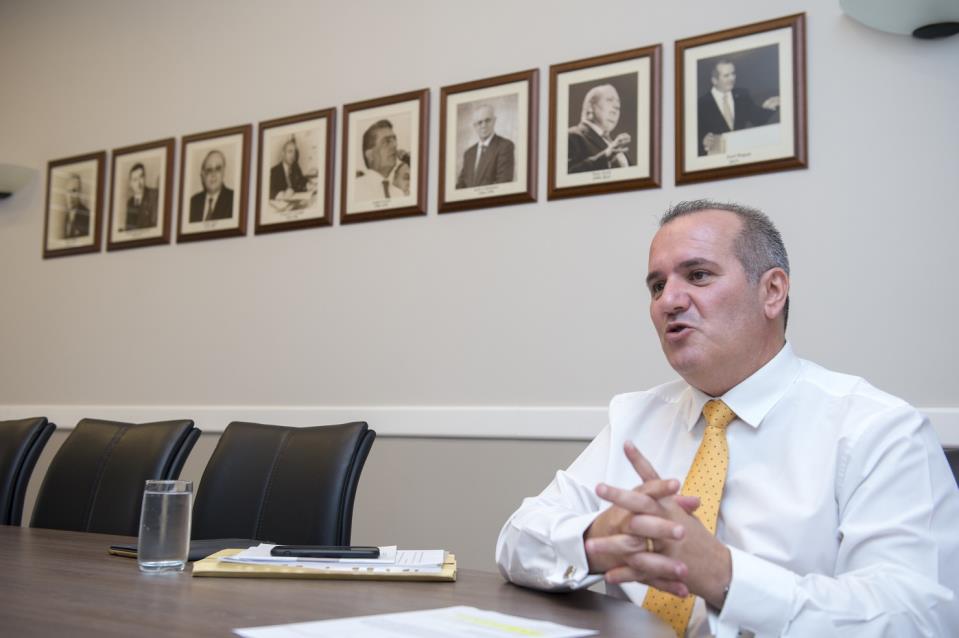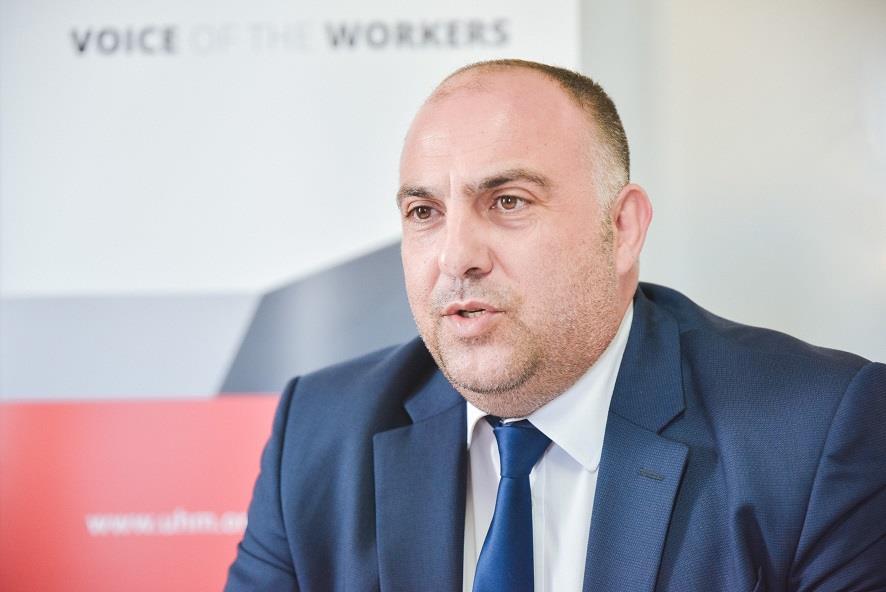Both the General Workers’ Union (GWU) and the Voice of the Workers (UHM) believe that the Coronavirus crisis rests on the balance between the medical and economic side of things.
On Monday, Prime Minister Robert Abela, alongside Health Minister Chris Fearne and Superintendent of Public Health Charmaine Gauci, announced the second list of relaxation of measures. This included the reopening of restaurants and vanity service providers like hairdressers and beauticians, which comes two weeks after non-essential shops were allowed to open again.
Speaking to The Malta Independent both Josef Bugeja, GWU Secretary General, and UHM Voice of the Workers CEO Josef Vella said that they agree with the idea establishments need to start reopening but this must not come at the cost of people’s health.

“The major challenge in the current scenario is to strike a balance between the medical aspect and the economic aspect. People are very concerned about the medical aspect but workers are equally worried of losing their jobs,” Bugeja said.
Employees are worried about what the future holds for them and this is also affecting their mental health and well-being. For this reason, the GWU believes that it is the right time to start returning to the new normal – “We need to adapt and we believe it will be a learning curve to change our work ethics.”
Vella shared this sentiment, saying that the UHM does not think that workers can be closed off in their homes forever. However, the government has to make sure that the easing of measures happens in a scientific, monitored and calculated manner so that any possible mishap can be kept under control.
On Friday 15 May, the UHM compared Malta’s statistics of new Covid-19 cases per capita with other countries like Italy, Spain, France, Germany and England and they found that Malta had a higher number than other countries which it found quite worrying.

“We are seeing that the biggest threat was not the virus itself but the collapse of healthcare systems when the situation became uncontrollable, as has happened in a number of other countries,” Vella explained.
He acknowledged that Malta is at an advantage as all healthcare centres are well equipped, considering that its population adds up to just about half a million people. Nonetheless, healthcare workers and professional are starting to feel burnt out. So, the important thing is to guarantee that the easing of measures does not result in a second wave that will overwhelm our country because everyone has their limits.
The Malta Independent asked what they think of the Medical Association of Malta’s (MAM) opinion that the situation is not as stable as the government tried to depict it on Monday during the PM's press conference.
“While I believe that MAM was speaking from a medical point of view, major employers and employees are equally concerned about losing their jobs,” Bugeja said. “We (the GWU) have trust in our health authorities and we believe that it is the appropriate time to cautiously start getting back to work.”
He believes that if guidelines are adhered to, employees will not be put at risk as there have been various work places, like printing, pharmaceuticals and other manufacturing industries that continued to operate at full capacity by adopting the required Health and Safety measures.
On the other hand, Vella explained that he agrees with MAM as it is clear that the numbers we are experiencing today are much higher than the ones that we had when we were under specific restrictions.
“If I had to criticise anything in the Prime Minister's speech on Monday was the way he opened the conference as he gave off the idea that we have managed to overcome the virus,” he indicated.
“Abela said that ‘waves are something we will find at sea’ when, in reality, we know that there is a possibility of a second wave. We have to be responsible here as the thing that instils the most fear in the public is mixed messages.”
They were also asked to give their feedback on the set of protocols which the Malta Tourism Authority (MTA) issued on Tuesday which hospitality establishments must abide by if they choose to reopen this coming Friday.
Bugeja explained that the GWU immediately started discussions with individual employers about the impact of these measures and the effect on the working conditions after the announcement. Apart from the medical aspect and health and safety at the place of work, the union is also discussing salaries, work patterns, working conditions and benefits.
“It is a long process but we believe that our members can quickly adapt to the new world of work,” he said.
Vella believes that the conditions on which establishments are reopening cannot really be criticised as there needs to be some kind of prevention measures. Nonetheless, these same measures are weighing heavily on the enjoyment that customers typically experience when going shopping or eating out, which discourages them from doing so in the current situation.
“What is worrying restaurants the most is that certain expenses are inevitable when they reopen, like salaries for their cooks and waiters which they have to pay regardless of whether or not they get customers on that day,” he explained. “Thus, the expense will be greater than when they were closed and they run the risk of not getting enough income to make ends meet.”
He said that the initial feedback UHM got from hospitality establishments includes those who expressed that they prefer to stick with their delivery systems rather than reopen as usual, while others said that they will face challenges because of these restrictive protocols.